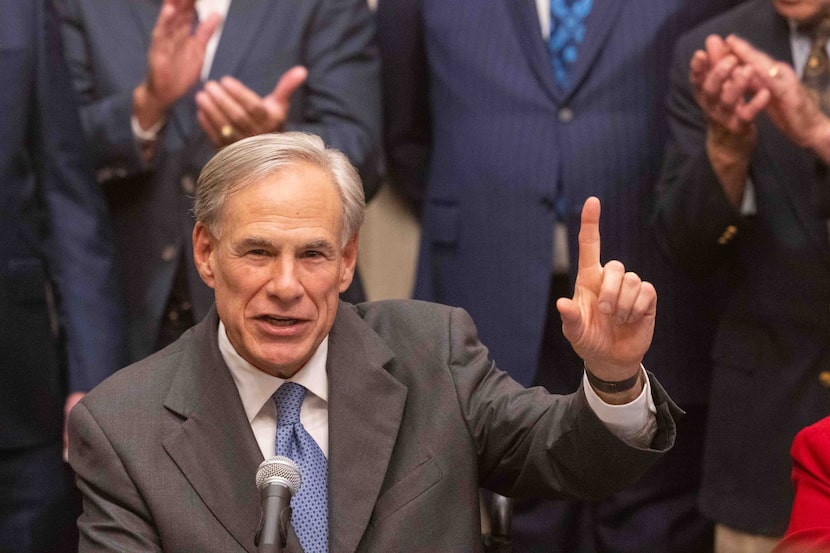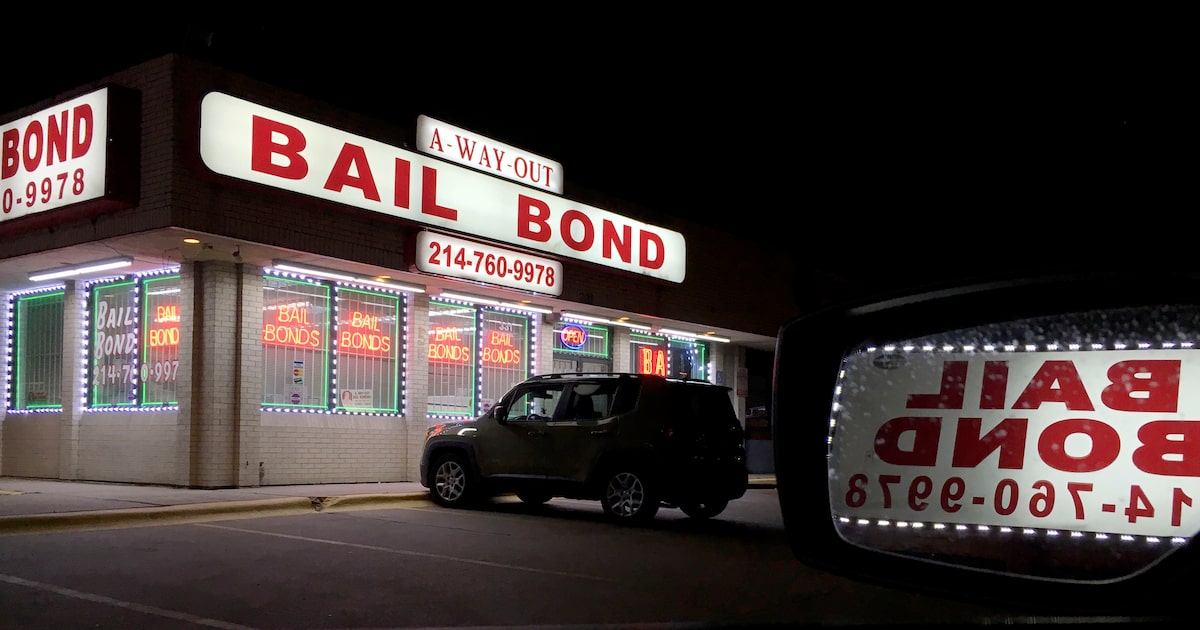Texas voters on Election Day will consider a proposed constitutional amendment that would broaden the circumstances in which judges can deny bail to criminal defendants awaiting trial on serious felony charges.
The measure — a yearslong priority for Gov. Greg Abbott, who has named the issue an emergency item for the last few regular legislative sessions — is one of 17 constitutional amendments on the ballot. The Texas Legislature authorized the amendment when it passed Senate Joint Resolution 5 with bipartisan support earlier this year.
Voters will decide this fall on 17 amendments to the state constitution. It’s important to understand how the amendments will impact day-to-day life in Texas before votes are cast. Election Day is Tuesday, Nov. 4; early voting opens Monday, Oct. 20.
If passed, the provision would give judges the ability to deny bail to people charged with certain violent crimes.
The proposed amendment will be on the ballot in the Tuesday, Nov. 4, election. Early voting begins Monday, Oct. 20.
Breaking News
Bail is intended to give defendants a financial incentive to return to court. A judge or magistrate sets an amount and a defendant can either pay it in full — refundable if they appear at every hearing — or pay a nonrefundable fee, usually 10%, to a bail bond company. The bail bond company would then post the full amount on their behalf. Judges may also grant a personal recognizance bond, allowing release on a written promise to appear without paying money.
The Texas Constitution ensures most people arrested have the right to be released on bail. It allows exceptions for those charged with capital murder or accused of certain repeat offenses or bond violations.
The proposition’s approval would add a new provision allowing judges to deny bail to people accused of certain felonies, including murder, capital murder, aggravated assault if they caused serious bodily injury or used certain weapons such as firearms or knives, aggravated kidnapping, aggravated robbery, aggravated sexual assault, indecency with a child, trafficking of persons or continuous trafficking of persons, if prosecutors can successfully show at a hearing that the defendant is a flight risk or their release poses a danger.
The measure’s backers argue it is needed to improve public safety and often frame their arguments in life-or-death terms, spotlighting cases in which defendants released on bond go on to commit other crimes, including murder. Civil liberties groups and critics argue that broadening the reasons for denying bail could risk punishing pre-trial defendants who, by law, are presumed innocent, and could lengthen jail stays.
The proposed amendment is changed from an original version carried by the Texas Senate. Later provisions included requiring a higher evidentiary standard to deny bail on the grounds of someone’s likelihood not to return to court and giving defendants a right to an attorney during the bail hearing.
The Bail Project, a national nonprofit advocating for and assisting low-income people in jail, said the original proposal would have “gutted core legal protections and unleashed a wave of unchecked pretrial detention,” but the group praised the additions later passed by the Legislature.
Elected prosecutors, Democratic and Republican, have supported the measure. In March, Dallas County District Attorney John Creuzot was among some 20 prosecutors to pen a letter voicing support for the resolution’s author, Sen. Joan Huffman, R-Houston.
District Attorney John Creuzot speaks during a press conference on March 22, 2023, at the Frank Crowley Courts Building in Dallas.
Shafkat Anowar / Staff Photographer
Approval would mark a significant feat years in the making for Abbott, others
Senate Joint Resolution 5 is the centerpiece of a sweeping legislative package passed by lawmakers this year that centered on the state’s bail laws, which comes after a number of smaller changes implemented in recent sessions.
The resolution’s passage by voters would be the result of “substantial political capital” spent by Abbott, Lt. Gov. Dan Patrick and their fellow GOP lawmakers and their focus on specific cases wherein they argue the bail system or judges failed crime victims and their families, according to Brandon Rottinghaus, a University of Houston political science professor.
“Crime is an important local issue. And even though the numbers are falling in many places, the feeling that crime is a problem persists among voters,” Rottinghaus said in an interview. He later added, “Republicans have gotten a lot of traction on the crime issue, even in what typically are big blue counties.”

Texas Governor Greg Abbott speaks during a bill signing event for legislation passed during the 89th regular legislative session concerning property tax relief for Texans at the Robson Ranch Clubhouse in Denton on Monday, June 16, 2025.
Juan Figueroa / Staff Photographer
Implications of new provision yet to be seen
The amendment’s impact is difficult to quantify and will be the subject of studies, said Sandra Guerra Thompson, a University of Houston Law Center professor who is part of a team monitoring Harris County’s misdemeanor bail system.
Thompson said it was likely that more defendants would be denied bail if the amendment passed, though it’s unclear how different those outcomes would be. In practice, she said, judges typically assign steep bail for violent crimes, which often has the same effect as denying bail.
Abbott, on the other hand, has argued judges too often set bail too low, particularly in large cities. He has argued reform was needed to address the decisions of “activist judges.”
For judges and magistrates, there will be an impact on their workload. For every defendant facing the relevant charges who is granted bail after a hearing, the judges and magistrates would have to write an order that includes findings of fact and an explanation of their justification, if the measure passes.
“I think legislators are well aware that judges have a limited amount of time and they don’t want to be writing a lot of orders in every single case,” Thompson said in an interview. “So it’s definitely going to put that little bit of pressure on a judge to go ahead and deny bail rather than have to spend the hour or however much time it takes to write a written order.”

